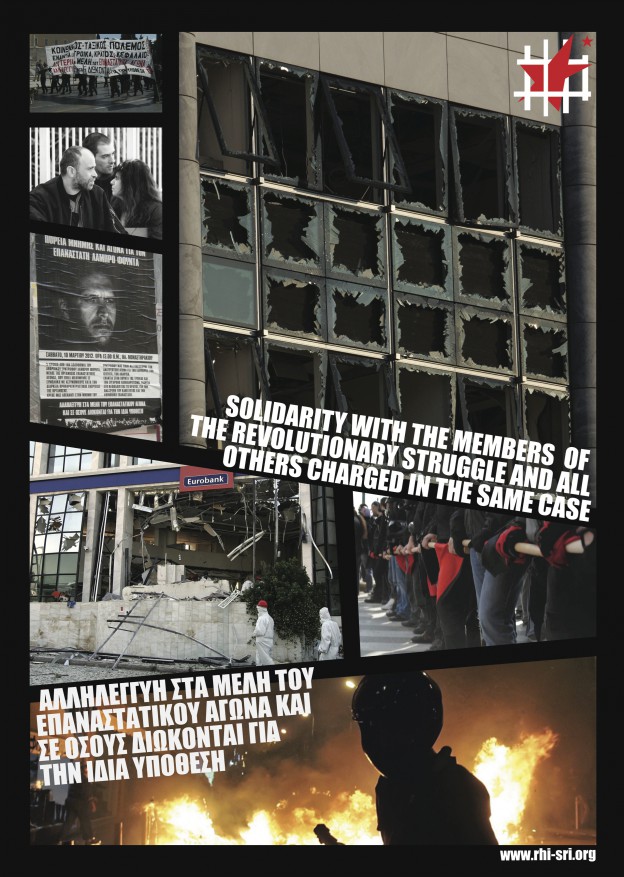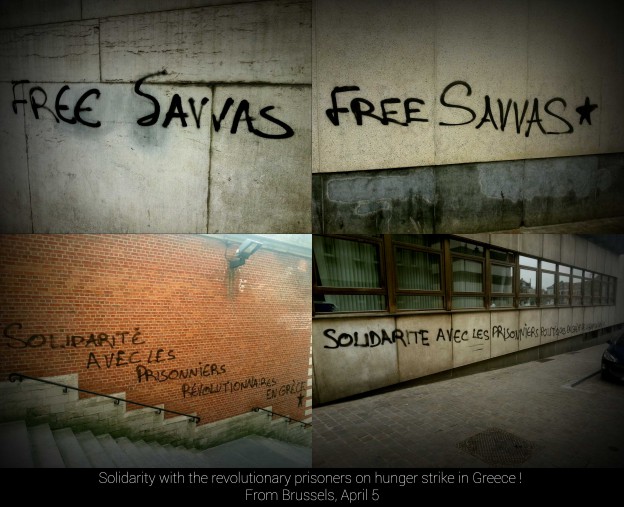The SYRIZA-led government is collapsing. The Greek default and exit from the Eurozone, as choice of the lenders, is a process that started in 2010 and currently marks the beginning of the end of the SYRIZA government. The implementation of the memoranda from 2010 was one phase in the process of orderly default that the supranational economic elite had chosen, in order to ensure the sustainability of the Euro and to cut off one member that due to the debt crisis is considered gangrened and has to be expelled. Essentially, Greece’s default has always been regarded by the supranational economic elite as a prerequisite for its salvation, without even breaking the country’s obligations to the lenders, something that was ensured by the inclusion of the country into the power of the IMF, the ECB and the European Commission. Since 2009, Greece was already a bankrupt country and this was something known by both the then government of Georgios Papandreou and the European Union. The supranational economic elite, from 2010 onwards, followed an orderly default tactic so as to safeguard the lenders, the then holders of Greek bonds, the French, German, British and American banks.
The first aim of the memorandum was that it prohibited unilateral suspension of debt payments on the part of the debtor. On that basis, all of the Greek state-owned assets were frozen to ensure the repayment of the debt.
Additionally the debt passed from Greek to Anglo-Saxon law, prohibiting its conversion from Euro into any undervalued national currency. The Greek state gave up national sovereignty over its assets, all of which were transferred to the jurisdiction of the lenders. By granting the prior loan of 110 billion euros and replacing the old debt with a new one, the second objective of the memorandum was the repayment of the then holders of Greek bonds and the transfer of debt to the international organizations, the IMF, the ECB, and the European Union member states. With this process of extension of Greece’s default, the holders of Greek bonds, who investment-wise had junk bonds on their hands, were able to get rid of them with the least possible losses.
This process continued with the PSI in the debt restructuring that took place in March 2012, where the big winners were the foreign banks, and the big losers were Greek banks, Greek social security funds and small bondholders.
Parallel to this, the supranational economic and political elite turned the country into ruins, and using the dilemma “austerity or bankruptcy and disaster” for five years launched a policy of societal genocide and euthanasia for sections of the population, leading to thousands of deaths and poverty, hunger and immiseration.
The ultimate objective of the lenders is to create a two-track European Union, with powerful and big-surplus countries on the one side, and weak, indebted countries on the other.
As we mentioned as imprisoned members of Revolutionary Struggle, in December 2010, in our text Let’s Make In Greece the Beginning for a Global Social Revolution: “Our exit from the EMU [Economic and Monetary Union] is now considered a given to ensure the viability of the Euro. However, as the debt crisis is deepening, and one European country after another will collapse financially in the near future, it is difficult not only for the EMU to survive but for the European Union as well. The most optimistic scenario for the future of the Union is to create a formation where powerful and big-surplus countries will lead and bankrupt countries of the European periphery will be transformed into protectorates, as they will cede entirely their economic and political sovereignty to the political and economic directorates of Europe. This condition is being promoted in the European Union by establishing an orderly default mechanism.”
Almost five years later, this process takes shape with Greece’s default within the European Union and its exit from the EMU. Through the process of orderly default, Greece was slated to become the first country to inaugurate the two-speed European Union. All Greek governments, from 2010 until today, faithfully served these aspirations of the supranational elite.
The SYRIZA government is collapsing in a much shorter time than its predecessors, the Samaras and Papandreou governments. Despite the fact that within 5 months they renounced the plan for which they were elected, that they accepted the repayment of debt, and signed the extension of the existing memorandum No. 2, despite stepping over many of their red lines in the negotiations with the aim of signing a new memorandum agreement with the creditors – an agreement they admitted themselves was much harsher than the measures proposed by [ex-finance minister] Hardouvelis – the lenders decided on Greek default and exit from the EMU, with the debt obligations of course to remain intact. In five months in power, SYRIZA proved how impracticable was their program, how inapplicable were their Keynesian reforms pursued in a globalized neoliberal environment within the framework of the European Union, how contradictory it was to accept the debt repayment while seeking to increase the basic salary, to agree to privatizations and want the state to be represented in the privatized enterprises, to request financing from the lenders while not wanting to apply the terms of the loan agreement that they themselves agreed to extend on February 20, 2015, to engage in hard negotiations while stepping over red lines by agreeing to memorandum measures and indirectly, with the new taxes and VAT increase, to a further reduction of people’s income, layoffs and unemployment increase; to think they blackmail the lenders by threatening not to pay the loan installments while on February 20 they’ve agreed to sign that there cannot be a unilateral breach of debt payments and that the Greek state-owned assets are frozen and can be sold off unless they pay.
It is certain that all the while the lenders thought the SYRIZA-led government to be an unreliable partner and administrator of the Greek crisis. The July 5 referendum decided upon by the government, to accept or reject the proposals of the lenders, is nothing else but the communications management of its political shipwreck, accompanied by conspiracy theories and suspicions of a political coup and “new Iouliana” [in reference to July 1965 events] aiming at its overthrow.
But, in reality, the SYRIZA government collapses under the weight of its own contradictions and its own deadlock. The referendum has no material basis because 5 days before the vote, on June 30, the austerity program expires and the country is already in default status, so there’s no such thing as a new negotiation or a proposal for an agreement with the lenders. Furthermore, the outcome of the referendum whatever it is will have no influence on the country’s bankruptcy and exit from the EMU, both of which are unavoidable, nor will it avert the eventual collapse of the government.
In the case of “Yes” in the referendum on the proposal of the lenders, the collapse of the government will be much more immediate, given that they formally drafted it in favor of the “No”.
If indeed the majority who participate choose “No”, it is possible for the government to gain a bit of time, but it is completely incapable and unprepared to deal with the consequences of bankruptcy and exit from the EMU, so sooner or later its fall is given.
Regardless of the outcome though, the referendum is misleading because what really is at stake, namely the Euro or Drachma dilemma, does not provide any solution to the problems of the people.
As we have said as Revolutionary Struggle, Greece’s exit from the EMU and the adoption of the Drachma in the European Union framework leaves the problem of debt untouched, and does not invalidate the memorandum-related commitments. Since a term of the memorandum prohibits the conversion of the debt from Euro into any undervalued national currency, not only the adoption of the Drachma would not reduce the debt, but it would increase it.
Also, the adoption of the undervalued Drachma would lead to further devaluation in the purchasing power of workers, and thus deterioration of living standards, which will further increase poverty and immiseration. Therefore, the question of currency alone does not solve the problem. Those who think that the exit from the EMU inside the European Union is a radical solution are grievously mistaken. Currently Greece’s exit from the Eurozone is being sought by the lenders themselves to downgrade a country to a protectorate within the framework of the European Union so it can be sold more easily to repay its debts.
Only action from below, only the action of a Revolutionary Movement that will overthrow the capital and the state, will erase the debt, will pull the country out of the European Union itself, NATO and the market economy, would give a radical solution while proposing the reorganization of society on the basis of Libertarian Communism, based on a confederation of communities, workers’ councils and popular assemblies. Right now, the political bankruptcy of SYRIZA, the country’s bankruptcy and exit from the EMU – the consequences of which are unknown even to the lenders themselves – open up a range of opportunities for revolutionary forces, so that we advance the prospect of overturn.
Abstention from the referendum.
No to the Euro or Drachma dilemma.
The only solution is social revolution and the people in arms.
Nikos Maziotis
Koridallos prison


